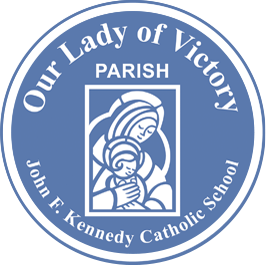Last week we celebrated the Solemnity of the Annunciation, marking nine months until the Nativity. Catholics often receive a lot of questions about Mary from non-Catholics, especially non-Catholic Christians, so here are some FAQ talking points:
Catholics don’t believe that Mary is divine or to be worshiped as God. We believe that God is One Being in Three Persons, those Persons are the Father, Son, and Holy Spirit.
Catholics do believe that Mary is the Mother of God, or Theotokos. Specifically, we believe she was the mother of the Second Person of the Trinity, when He became Incarnate as Jesus the Messiah. We do not claim that she existed eternally, but that God stepped into history as a human person at a specific moment in time, and selected her to be His mother.
Catholics do believe that Mary was conceived without sin and remained without sin her entire life through a special act of grace on the part of her Son, Jesus. This is called the Immaculate Conception. Why do we believe this? Lots of reasons! To start, Mary is addressed by the angel Gabriel as “full of grace” and “highly favored,” yet it is impossible for a sinful human person to be either of these things (Lk. 1:26-38). Likewise, we know that God is highly demanding regarding the purity and quality of materials to be used for those vessels which carry His covenant, see Exodus 25:10-22). Yet Mary isn’t a box carrying, the presence of the Lord, a set of stone tablets, and a bit of the manna from the desert wanderings of Israel. Mary is a human person, and what she carries is the Second Person of the Trinity, God Incarnate – the Kingdom of Heaven in Person, the new and everlasting Covenant, the true Bread from Heaven, which Israel and the tablets and manna only foreshadowed.
Catholics don’t believe that Mary didn’t need salvation. We believe that all human persons besides Jesus require salvation – a salvation only made possible by the graces emanating from the Passion, Death, Resurrection, and Ascension of Jesus. In the case of Mary, we believe these graces were given to her pre-emptively. Imagine a giant pit representing sin. Jesus saves most of us by pulling us out of the pit, but He saved Mary by preventing her from falling into it. Either way, salvation only comes through Him, and is absolutely necessary for all of us.
Catholics do pray to Mary. But we understand that prayer and worship are not the same things. To pray literally means “to ask,” and a Catholic praying to Mary is only asking for her intercession – similar to how the couple getting married in Cana in John chapter 2 relied on Mary’s aid, and similar to how many of us ask our family, friends, and other loved ones to regularly pray for us.
Related to this, Catholics do believe that Mary, as Queen of Heaven, has a special intercessory role in our lives. Mary is the Queen of Heaven because in the Davidic Kingdom, the mother of the King, not the wife of the King, was the Queen of Israel. A King could have many wives (just look at Solomon) but only one mother. Queens in Hebrew history also brought requests to the King, see the book of Esther, and 1 Kings 2:19.
Catholics don’t believe that Mary saves us from our sins. But we do believe that her “yes” (or fiat) to God in Luke 1 represents a special cooperation with God in salvation history that is unique. Nowhere else save perhaps in the Gardens of Eden and Gethsamene do we see God giving human freedom so great a scope and power to affect the course of history, which is part of why we also call Mary the “New Eve.” Had she, like Eve, said no, who can imagine the course of salvation history? That she said, “yes” to God is the source of all the blessings which Luke’s Gospel claims she will receive, for truly without Jesus there is no Mary, but without Mary, there is also no Jesus.


